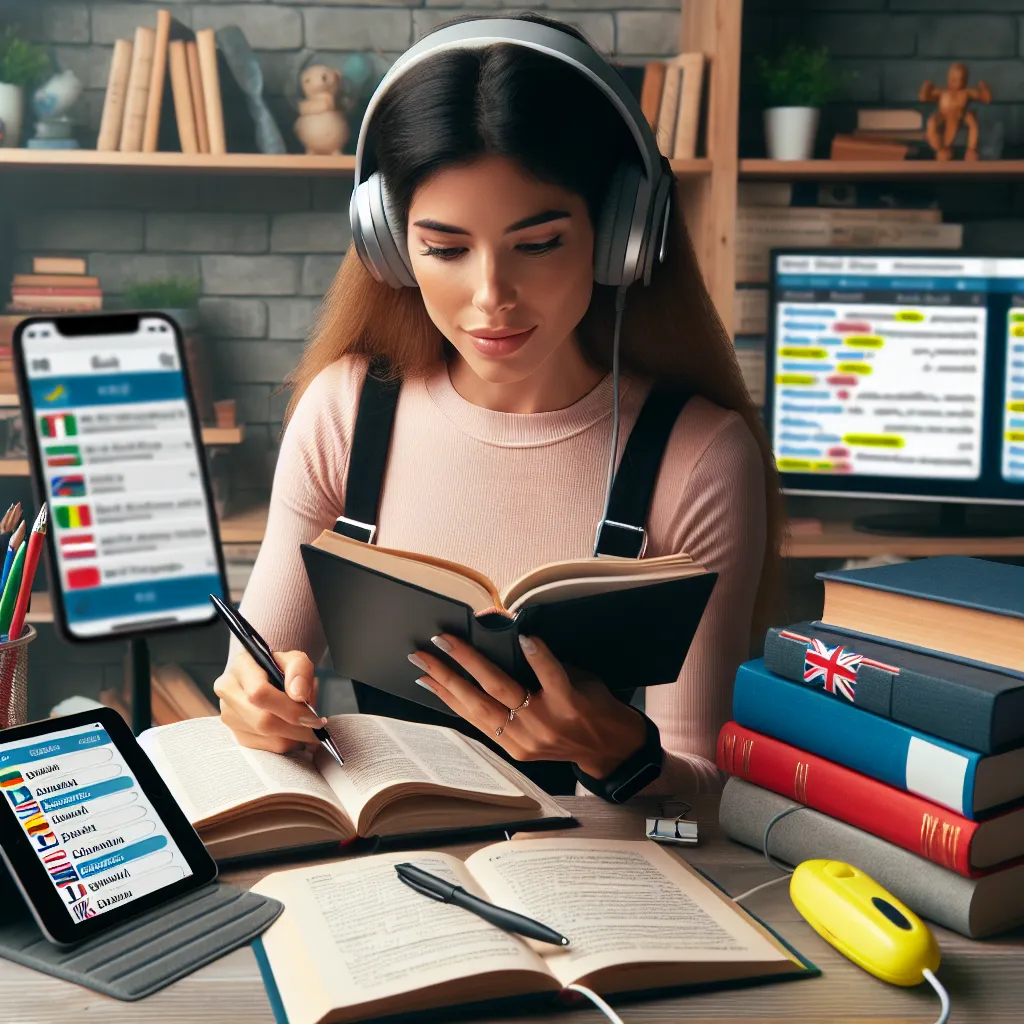Are you looking to enhance your English language skills? One of the most effective and enjoyable ways to do so is by leveraging English media. This comprehensive guide will explore various strategies and resources to help you improve your English through movies, TV shows, podcasts, and more.
 English Media Learning
English Media Learning
Understanding the Power of English Media in Language Learning
English media offers a unique and immersive way to enhance your language skills. By exposing yourself to authentic language use in context, you can improve your vocabulary, grammar, pronunciation, and cultural understanding. Here’s why English media is so effective:
- Real-world language use
- Diverse accents and dialects
- Cultural context and idiomatic expressions
- Engaging and entertaining content
Types of English Media for Language Learning
There are various forms of English media you can use to improve your language skills:
- Movies and TV shows
- Podcasts and radio programs
- YouTube videos
- News articles and magazines
- Music and song lyrics
- Audiobooks
Each type of media offers unique benefits and can cater to different learning styles and preferences.
Strategies for Using English Media Effectively
To make the most of English media for language improvement, consider the following strategies:
1. Choose Appropriate Content
Select media that matches your current English level. If you’re a beginner, start with content designed for English learners or children’s programs. As you progress, gradually move to more complex material.
2. Use Subtitles Wisely
For video content, use subtitles strategically:
- Begin with English audio and subtitles in your native language
- Progress to English audio with English subtitles
- Eventually, challenge yourself with English audio only
3. Active Listening and Viewing
Don’t just passively consume media. Engage actively by:
- Pausing to look up unfamiliar words
- Repeating phrases to practice pronunciation
- Taking notes on new vocabulary or expressions
4. Repeat and Review
Revisit the same content multiple times. Each viewing or listening session will help reinforce your learning and reveal new language nuances.
5. Combine Media Types
For a comprehensive learning experience, try combining different media types. For example:
- Watch a movie, then read reviews or summaries about it
- Listen to a podcast, then discuss it in an English language forum
Practical Tips for Different Media Types
Movies and TV Shows
- Start with genres you enjoy to stay motivated
- Use the “5-minute method”: Watch a 5-minute segment multiple times before moving on
- Challenge yourself to summarize episodes or scenes in English
For more tips on practicing English without a partner, check out our article on effective ways to practice English without a partner.
Podcasts and Radio Programs
- Begin with podcasts designed for English learners
- Progress to news podcasts or talk shows on topics that interest you
- Try transcribing short segments to improve listening and writing skills
YouTube Videos
- Explore channels dedicated to English learning
- Watch vlogs or how-to videos in areas of personal interest
- Engage with the community by commenting in English
News Articles and Magazines
- Start with simplified news websites for English learners
- Gradually move to authentic news sources
- Practice summarizing articles in your own words
If you’re working with limited resources, our article on tips for learning English with minimal resources can provide additional guidance.
Music and Song Lyrics
- Choose songs with clear vocals and relatable themes
- Read lyrics while listening to improve comprehension
- Try to sing along to practice pronunciation
Audiobooks
- Start with children’s books or short stories
- Progress to novels or non-fiction in areas of interest
- Listen while reading the physical book for a multi-sensory experience
Common Pitfalls to Avoid
When using English media for language improvement, be aware of these potential pitfalls:
- Overreliance on subtitles
- Choosing content that’s too difficult or easy
- Passive consumption without active engagement
- Neglecting to practice output (speaking and writing)
- Focusing solely on entertainment value rather than learning opportunities
Next Steps: Putting Your Learning into Practice
To truly benefit from English media, it’s crucial to apply what you’ve learned. Here are some suggestions:
- Join online discussion forums about your favorite shows or movies
- Start a blog or vlog in English discussing media you’ve consumed
- Find a language exchange partner to discuss English media
- Participate in English-language fan communities for your favorite media
For those looking to collaborate with others, our guide on tips for mastering English through collaborative projects offers valuable insights.
Conclusion
Using English media for language improvement is a powerful and enjoyable way to enhance your skills. By following the strategies and tips outlined in this guide, you can create an immersive English learning experience tailored to your interests and goals. Remember, consistency is key – make English media a regular part of your language learning routine, and you’ll see significant improvements over time.
As you progress in your English learning journey, you may want to explore more advanced topics. Our articles on how to use advanced attributive clauses and mastering the use of complex comparatives can help you take your language skills to the next level.
Start incorporating English media into your learning routine today, and watch your language skills soar!




